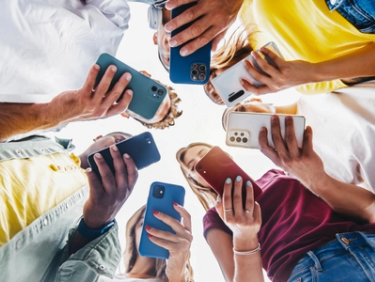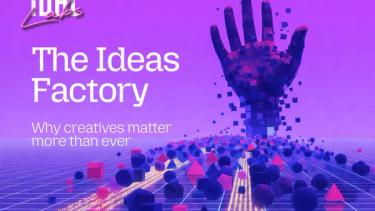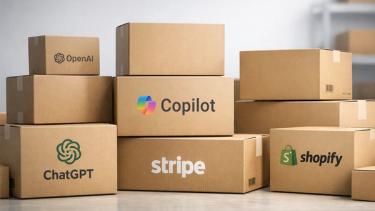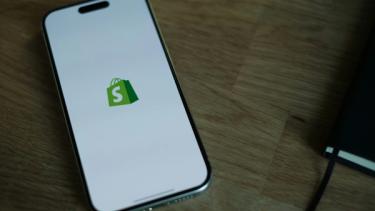PPC5 min read
Can Google's AI Max make a difference to PPC performance?
Tue Oct 28 2025 | Rachael Higgins

- PPC
- Performance
- Insight
- IDHL Labs
Tags
As AI continues to reshape the digital landscape, performance marketers face a new frontier. Large language models (LLMs) and AI Overviews show great promise in areas like SEO but how does PPC fit into a world of emerging AI-powered search experiences? Google’s AI Max feature offers an interesting answer.
According to Google, brands adopting AI Max are experiencing 27% more conversions compared to campaigns using exact and phrase match keywords. But utilising generative AI is a delicate balance.
At IDHL, we’ve been experimenting with AI Max campaigns over the past few months to better understand the potential gains and limitations on offer.
Combining AI and PPC: what is the risk?
Using AI in paid search campaigns has its advantages – smarter targeting, automated reporting, creative optimisation and more. However, there are costly risks to relying too heavily on AI without proper oversight:
- Flawed data – The success of LLMs and other AI tools is tied directly to the data it receives. Inaccurate or biased information can skew performance, leading topoor decision-making, irrelevant ad placements or misdirected targeting.
- Impersonal campaigns – While AI can enhance targeting, it doesn’t always excel at personalisation. Without the nuance and creativity of human insight, ads risk becoming too generic and impersonal.
- Inefficiency and wasted spend – Without guidance, automated systems can overspend on broad terms, target low-quality clicks or chase inefficient strategies. Not to mention the cost of missed opportunities and repairing campaign mistakes.
This is why the human-AI partnership is always the best choice, no matter the tool you’re using. AI can handle the heavy lifting, but it needs assistance to avoid missteps.
What is Google AI Max?
In response to AI’s growing influence on Search behaviour, Google has developed AI Max for Search. This advanced suite of targeting and creative enhancements leverages Google AI to enhance PPC campaigns.
This add-on feature enhances performance by automatically matching relevant ads to emerging user intent across multiple surfaces, optimising creative assets and using final URL expansion to send users to relevant pages.
Altogether, these features enable PPC activity to adapt intelligently, keeping ad content relevant to user queries.
Our results
After experimenting with AI Max, we uncovered some promising results:
- Travel clients have seen 35-45% cheaper CPCs and 12% lower CPA compared to using broad match keywords
- An insurance client experienced 27% cheaper CPCs versus exact/broad/phrase keyword matches
Your takeaways
We’ve identified several insights that can transform PPC campaigns – with the right guidance.
Search term matching
One of the first things we noticed was the breadth of search term matching. It’s broad, capturing both long-tail and short-tail queries.
But are these terms relevant to the client? Generally, yes.
Should we be showing ads for them all? Not necessarily.
Like any match type, AI Max requires a learning period. While we’ve seen improvements in the relevancy of matched search terms, the algorithm continues to refine its understanding of intent. This evolving process is promising for advertisers looking for more precise targeting.
Cost efficiency: A welcome surprise
CPCs are steadily rising, with Google reporting increases of up to 6% YoY. However, AI Max has delivered a pleasant surprise: lower costs compared to traditional Broad and Exact match types.
This cost efficiency could make AI Max a compelling option for brands looking to stretch their budgets further without sacrificing campaign performance.
AI Overviews
Perhaps the most intriguing aspect of AI Max is its ability to capture queries that often trigger AI Overviews (AIOs) in Google SERPs. But what happens when paid ads start appearing in these snippets?
Paid placements in AIOs could radically change how users interact with ads and how we measure performance success. Naturally, this is a space we are watching closely.
The future of PPC
AI Max is still in its early days, but it’s clear that PPC is entering a transformative phase. As generative AI continues to influence search behaviour and ad delivery, staying ahead means testing, learning and adapting quickly. At IDHL, we are constantly exploring new ways to integrate AI into digital marketing strategies.
Get in touch with us to find out more about the PPC services available at IDHL and how we can enhance your campaign performance.


